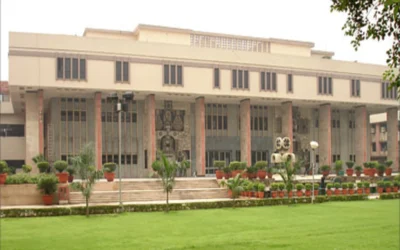India Implements Transformative Criminal Laws

India has entered a new era in its criminal justice system with the implementation of three landmark legislations — the Bharatiya Nyaya Sanhita (BNS), the Bharatiya Nagarik Suraksha Sanhita (BNSS), and the Bharatiya Sakshya Adhiniyam (BSA). These laws, which came into force nationwide on July 1, 2024, replace the colonial-era Indian Penal Code (IPC), Code of Criminal Procedure (CrPC), and Indian Evidence Act, respectively, marking a historic shift in the country’s legal framework.
The new legal architecture reflects a move from a purely punitive system towards a justice-oriented approach, rooted in Indian values, with a focus on citizens’ rights and the creation of a secure society.
1. Modernizing Criminal Offences
The BNS streamlines and updates offences, introducing specific provisions to address emerging crimes such as mob lynching, terrorism, and organized crime.
It prescribes enhanced punishments for grave offences, including the death penalty in aggravated cases of gang rape against minors.
2. Ensuring Efficient Justice Delivery
The BNSS incorporates significant procedural reforms, such as mandatory forensic investigations in serious offences (punishable with seven years or more of imprisonment).
It prescribes time limits for the completion of investigations and facilitates the use of electronic means for trials and court proceedings.
The provision of “Zero FIR” enables the registration of complaints at any police station, irrespective of jurisdiction, ensuring prompt action.
3. Strengthening Evidence Collection and Admissibility
The BSA broadens the definition of “documents” to include electronic and digital records as primary evidence, essential for addressing crimes in the digital era.
It permits the electronic presentation of oral evidence and requires certificates of authenticity for electronic records, ensuring evidentiary integrity.
According to the Press Information Bureau (PIB), this comprehensive overhaul aims to create a more transparent, efficient, and victim-centric criminal justice system. Special emphasis has been placed on the protection of women and children, with the BNS containing dedicated provisions on human trafficking, child exploitation, and other gender-based crimes.
The reforms also mark a strategic shift from merely punishing offenders to ensuring justice for victims, fostering societal security, and contributing to the vision of a Viksit Bharat (Developed India). While implementation will require significant adaptation by law enforcement agencies, the judiciary, and the legal community, this legislative transformation is viewed as a bold and progressive step towards an equitable and responsive justice system.

